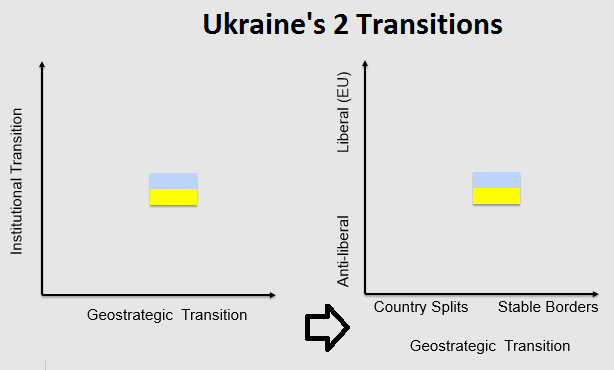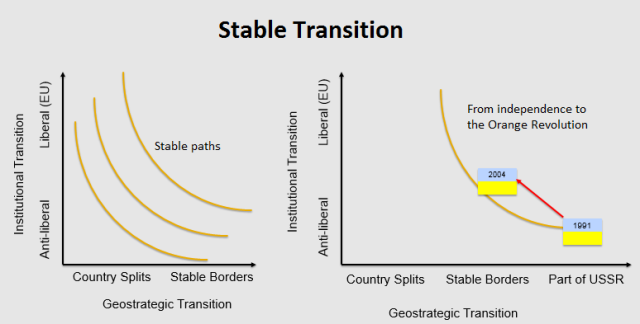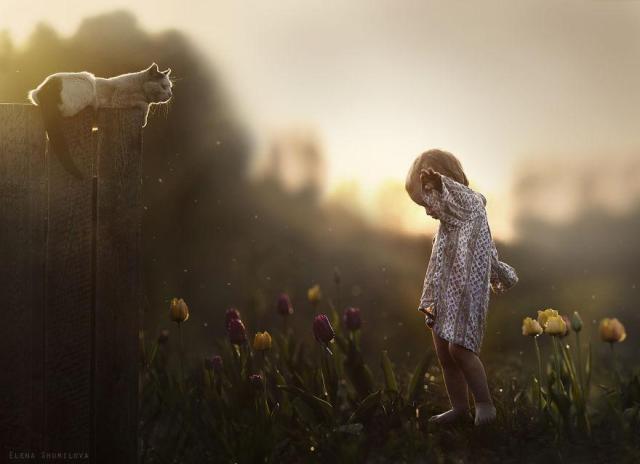For the past 20 years, Ukraine has been a country in transition, emerging from the Soviet rubble with an unneeded nuclear arsenal, a linguistically heterogeneous population, a crumbling economy and a semi-authoritarian political system in place, party-boss plutocracy reimagined as “democracy”.
Now the country has been invaded. The parliament of Crimea has voted to accede to Russia. After months of gripping street battles a drama is playing out in the Black Sea coast that apparently has taken much of the world by surprise.
But it was easy to see this coming. Russia has consistently pursued an activist foreign policy in its near abroad, most viscerally seen by its 2008 invasion of Georgia, ostensibly to protect ethnic Russians in South Ossetia.
The argument, the objective, and the implementation are parallel to what we see in Ukraine. They are running their playbook.
And what is their objective? Broadly speaking…
To ensure that key former Soviet states remain politically and economically aligned with Russia.
There are fill-in-the-details, like the naval base deal brokered in 2010, or the seemingly half-hearted attempt at re-integration (following the Soviet disintegration) via the Eurasian customs union.
While the Russian playbook is transparent, the grand strategy of American President Barack Obama, who has been critical of Putin’s incursion into Crimea, has been less clear. Hence the spread of witty political cartoons such as this one:

But what moves does he have? Given that…
Ukraine is in transition.
In fact, as taught in American academia, Ukraine is undergoing two transitions:
(1) Institutional transition
The country shifted from a communist regime to a country on the path to democracy (whatever that means)
(2) Geostrategic transition
Due to its geography, Ukraine has been drawn to two competing poles – Russia to the east and the EU to the west, both offering certain protections and certain constraints on Ukraine’s sovereignty.
In fact, as stated in an interview with a member of Ukraine’s Autonomous Workers Union, “objectively, the optimal scenario for the Ukrainian economy would be to continue the old policies of geopolitical “neutrality”, without decisive integration into Western or Eastern structures. Any ‘choice’ will be a severe blow to Ukrainian exports and to the well-being of the people” in order to “avoid an explosion of so many contradictions (class, national, geopolitical, economical, etc.) that intersect each other in the Ukrainian society.”
Based on my reading of world events, these two transitions, perhaps one internal and one external, have created two sharp dichotomies: will Ukraine’s political institutions become more liberal or anti-liberal? And will Ukraine maintain its territorial integrity? (note that this blog post was drafted before the Crimean referendum).

One underlying objective, preferred by realists but not yet articulated by Western leaders in the latest series of events, is stability. Stability in transitions is brought about through any number of instruments, from authoritarianism to the careful management of social expectations, or through gradual economic reform. And the fact is, compared to other former Soviet states, particularly those that experienced armed conflict, Ukraine experienced a stable transition in the first 13 years of its recent independence.
Despite being ruled by a corrupt strongman, Ukraine maintained the geopolitical diffidence described above while paying lip service to democratic reform. The country was stable, until in 2004 all of a sudden it was not. What appeared as the Orange Revolution was in fact just a dramatic reshuffling of the patronage system.

Since this time, Ukraine has been at a crossroads, and this is the first point where we can say maybe the west was playing chess not checkers, as they (naively) engaged in negotiations on an EU association agreement with President Viktor Yanukovich, no friend of the EU and a man who owed his political success to the Kremlin kingmaker.
Let’s say at this stage, based on the two transitions described above that there were four paths before Ukraine:
(1) More liberal (EU-oriented), maintain territorial integrity — path to EU membership for unified Ukraine
(2) More liberal (EU-oriented), compromise territorial integrity — path to EU membership for western Ukraine
(3) Less liberal (Russia-oriented), maintain territorial integrity — path to strategic alignment with Russia
(4) Less liberal (Russia-oriented), compromise territorial integrity — possible path to civil war
These scenarios are depicted below:

In November 2013 Yanukovich made a tactical decision that required a strategic response: he ‘revealed the lie‘ and abandoned negotiations with the EU on a trade and association agreement. The sparked an outbreak of street protests that he was unable to suppress, revealing a society deeply divided. He had deceived his own people, costing him political capital. And had he perhaps also deceived the EU?

At this point, Ukraine’s transitional path shifted abruptly as the carefully managed expectations gave way to rapidly growing social instability. I believe this required a strategic response by the EU. Alternately, the absence of a response showed what my intuition tells me is true: of the four scenarios outlined above, none of them fit into any strategic parameters articulated by the west. There are no nukes involved like there were in the 1990s, so we simply dont have any skin in the game. EU membership for Ukraine would be nice, but not worth going to war over.
And here is where Russia implemented its strategy by moving military units into Ukraine, committing the Crimean security services to Russian loyalty and coordinating a dubious parliamentary referendum on accession to Russia. As of this writing, I still believe the military play is largely a bluff (no shots have been fired), but the implications are strategic: Russia is protecting its long-term interests in the Black Sea and understands that its actions have possibly permanently knocked Ukraine off any path towards EU membership, certainly in the foreseeable future.
Why did they do this? Because they believe that the strategic objective is worth the cost. You may disagree with their objective, but I find it hard to disagree with their implementation of strategy. On the other hand, I have trouble seeing what the west’s objective is or even should be. Based on the ad hoc and reactionary response from the west, I think our lie – like Yanukovich’s – was revealed as well: we support Ukrainian integration with the west, so long as it does not cost us anything. We have been on a collision course with Putin’s Russia for years and do not appear to have done any contingency planning. Or we did, behind the scenes, and it has been ineffective.
So is Putin playing chess? If so, what is the west’s countermove? Nation-states come and go, and sometimes stability requires a country to split, either peacefully (Czechslovakia) or as the end point of a long period of bloodshed (Yugoslavia).

If I were a realist, I would make two conclusions:
– While Putin may still be bluffing, he is willing to threaten extreme action to protect Russian military interests in Crimea. [We will see if Putin is bluffing once violence escalates]
– If recent events have “exploded Ukraine’s internal contradictions” beyond repair, then the strategic play for the west is to move Ukraine on the path to the top left corner. That is, redoubling efforts to integrate western Ukraine with Europe.
I think this matches up with what the west has demonstrated it is willing to risk. To move a unified Ukraine back on the path to EU membership in light of the facts on the ground as of March 2014 may require more than we are willing to risk. This means that we either gravely underestimated Putin (possible), or that Ukraine’s future was never a strategic priority (more likely).

Years from now, looking back, we may remember November 2013 (and not March 2014) as a moment when the west conceded a crucial stage of a post-Soviet nation’s political and economic transition.
















